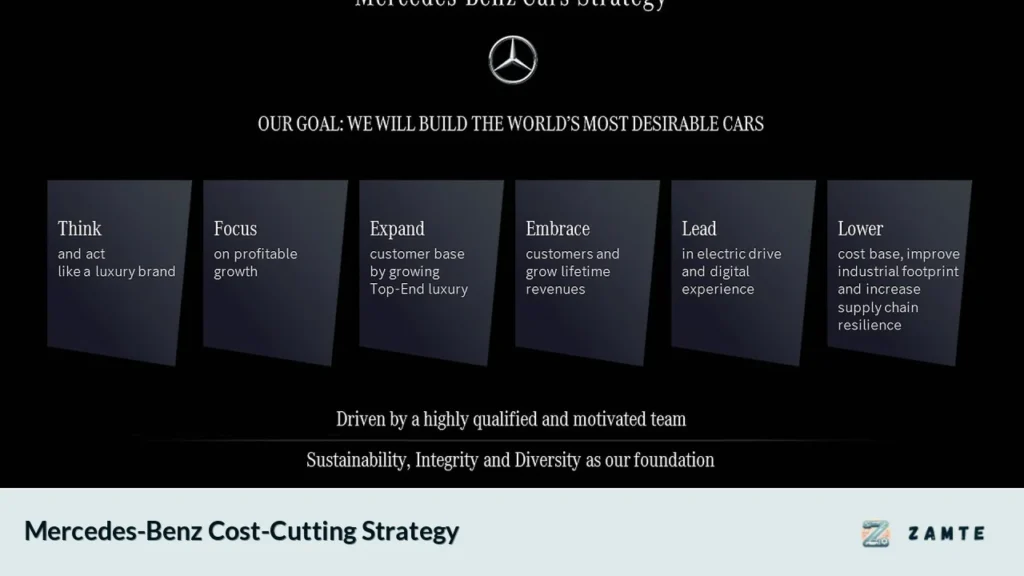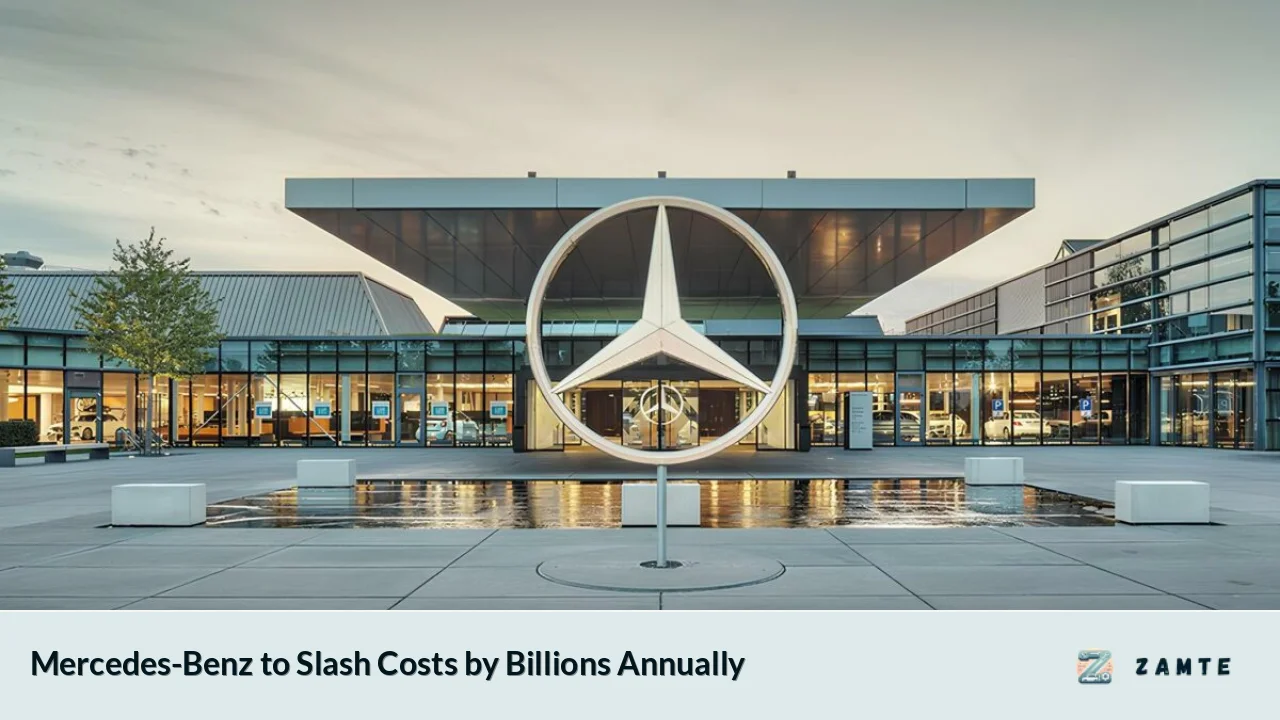Mercedes-Benz, a name synonymous with luxury and engineering excellence, has recently made headlines with its announcement of significant cost-cutting measures. As the automotive industry faces unprecedented challenges, including a shift towards electric vehicles and fierce competition in global markets, this decision marks a pivotal moment for the company. This article delves into the implications of these cost-cutting strategies for consumers and the automotive sector at large.
Overview of Recent Developments
On November 21, 2024, Mercedes-Benz revealed its plans to implement substantial cost reductions amounting to several billion euros annually. This decision comes in response to declining profits and increased pressures from both market dynamics and operational costs. The specifics of how these cuts will be executed remain vague, raising concerns about potential job losses and the impact on various departments within the company.
| Date | Event | Details |
|---|---|---|
| November 21, 2024 | Cost-Cutting Announcement | Plans to reduce costs by several billion euros annually due to declining profits. |
| October 2024 | Q3 Earnings Report | Net profit dropped by over 50% year-on-year to €1.72 billion. |
| Ongoing | Market Pressures | Increased competition in electric vehicle market and declining demand in China. |

The Need for Cost-Cutting
Economic Context
The global automotive industry is currently navigating a tumultuous landscape characterized by:
- Declining Profits: Mercedes-Benz reported a staggering drop in net profit during Q3 2024, falling by 54% compared to the previous year. This decline was attributed to weaker demand in key markets, particularly China, where consumer confidence has waned due to economic uncertainties.
- Increased Competition: The rise of electric vehicles (EVs) has intensified competition among automakers. Companies like Tesla and emerging Chinese EV manufacturers are capturing market share, forcing traditional automakers like Mercedes-Benz to rethink their strategies.
- Geopolitical Tensions: Recent EU tariffs on Chinese electric vehicles have raised concerns about retaliatory actions from China, further complicating Mercedes-Benz's operations in one of its largest markets.
Strategic Response
In light of these challenges, Mercedes-Benz's management has decided that cutting costs is essential for maintaining financial stability. A spokesperson emphasized that “only by sustainably increasing efficiency will we remain financially strong and able to act”. This sentiment reflects a broader trend among automakers facing similar pressures.
Potential Impacts on Consumers and the Industry
Short-Term Effects
- Job Security Concerns: While Mercedes-Benz has assured that most German employees will retain their jobs due to existing agreements protecting against compulsory redundancies until 2029, uncertainty still looms over potential layoffs or restructuring in other regions.
- Product Offerings: As the company reallocates resources towards efficiency, consumers may see changes in product offerings or delays in new model launches as focus shifts towards cost management.
- Price Adjustments: Depending on how effectively Mercedes-Benz can implement these cuts without sacrificing quality or innovation, consumers might experience price adjustments on new vehicles. If costs are reduced significantly, it could lead to more competitive pricing in the luxury segment.
Long-Term Implications
- Sustainability Initiatives: With a focus on cutting fixed costs, there is potential for Mercedes-Benz to redirect funds towards sustainable practices and innovations in electric vehicle technology. This could enhance their market position as consumers increasingly prioritize sustainability.
- Market Positioning: By streamlining operations, Mercedes-Benz aims to enhance its competitiveness against rivals like Volkswagen and BMW who are also undergoing similar transformations. The ability to adapt quickly could determine long-term success in a rapidly evolving market.
- Investor Confidence: The announcement of cost-cutting measures may initially raise concerns among investors about the company's stability; however, if executed effectively, it could restore confidence in the brand’s ability to navigate economic challenges successfully.
Expert Opinions and Industry Reactions
Industry experts have weighed in on Mercedes-Benz's decision to cut costs, highlighting both risks and opportunities:
- An analyst from Automotive News noted that “the need for efficiency is greater than ever as automakers transition to electric vehicles while managing legacy costs”[1]. This perspective underscores the necessity of balancing traditional operations with future-oriented strategies.
- Consumer sentiment appears mixed; while some appreciate the potential for lower prices resulting from cost efficiencies, others express concern over quality compromises that may arise from aggressive cost-cutting measures.
Conclusion
Mercedes-Benz's recent announcement regarding substantial cost reductions reflects a critical juncture for the company as it navigates complex market dynamics. While immediate impacts on jobs and product offerings may create uncertainty for consumers and employees alike, the long-term benefits of enhanced efficiency could position the brand favorably within an increasingly competitive automotive landscape.
As the industry continues to evolve with technological advancements and shifting consumer preferences, how well Mercedes-Benz executes these cost-cutting measures will ultimately determine its future success and reputation as a leader in luxury automotive manufacturing.
FAQs
- What prompted Mercedes-Benz's decision to cut costs?
The decision was driven by declining profits and increasing competition in the automotive industry. - How much does Mercedes-Benz plan to cut annually?
The company plans to reduce costs by several billion euros each year. - Will there be job losses as a result of these cuts?
The company has not specified potential job losses but assures most German employees are protected until 2029. - What are the expected impacts on consumers?
Consumers may see changes in product offerings and potential price adjustments depending on how effectively costs are managed. - How might this affect Mercedes-Benz's sustainability efforts?
If successful, cost reductions could allow for increased investment in sustainable practices and electric vehicle technology.
